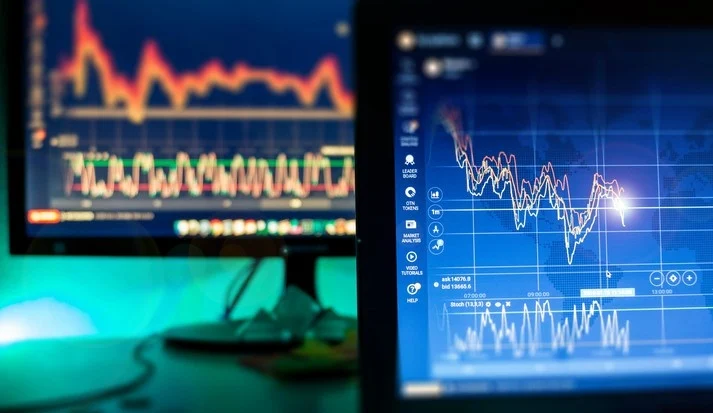
CFDs are a derivative used to speculate on the price movements of an asset without actually owning it. This trade is prevalent in Singapore, allowing traders to make find opportunities even when markets are trending downwards. As such, CFD trading has become an attractive way for investors in Singapore to diversify their portfolios and increase potential returns. Below are some advantages of using CFDs as a trading strategy in Singapore.
Traders can use them to hedge risk
Traders can use CFDs in Singapore to hedge against market risk. They can do this by buying a CFD that closely follows the same underlying asset or is highly correlated with the original position held by the trader. In this way, traders can limit their losses if the markets move adversely to their existing positions. In addition, CFDs can hedge against currency risk by buying a contract in the opposite direction to their position. Moreover, traders can use CFDs to hedge against sector or stock-specific risk.
Leverage
CFD trading in Singapore offers traders the chance to use leverage, a form of borrowed capital that enhances returns on the initial investment. Therefore, traders can open positions that are valued significantly more than the initial funds they have available, thus allowing them to take advantage of smaller moves in the market. However, it is essential to note that this strategy involves more significant risks and should only be utilised if one fully understands how leverage works before taking advantage of it.
Low costs
Another central plus point for using CFDs in Singapore is the low costs associated with trading them. Generally speaking, CFDs have much lower transaction costs than traditional trading methods, as there are no commission fees or other charges to be paid. It can make the overall cost of trading more attractive and increase the potential for doing well. Moreover, since CFDs are traded over the counter, there is no need to pay exchange fees.
Flexibility
CFD traders in Singapore enjoy greater flexibility compared to those who use traditional methods. For instance, they can open long and short positions depending on their view of the markets at any time. In addition, CFDs offer traders the opportunity to trade on a wide range of underlying assets, including stocks, indices, commodities, and foreign currencies. Furthermore, CFDs are traded over global exchanges, allowing traders to access global markets while staying in Singapore.
Access to advanced tools
The trading platforms used by CFD traders in Singapore provide access to a wide range of sophisticated features and tools that help them to analyse markets and make informed decisions. These include charting tools, algorithmic trading technology and technical indicators that traders can use to track market movements more closely. In addition, traders also have access to expert analysis, which can help inform their decision-making.
Ability to go short
Traders can use CFDs to benefit from a falling market, as traders can effectively ‘short’ an asset by opening a CFD position that gains value when the underlying asset declines in price. It allows traders to potentially find new opportunities even if markets are trending downward. However, it is essential to note that this strategy carries higher risks than other forms of trading and should only be undertaken after careful consideration of the potential implications.
Risks of using CFDs as a trading strategy
While there are several advantages to using CFDs as a trading strategy, it is essential to note that this strategy also carries certain risks. Traders should know these to ensure they take calculated risks when trading CFDs in Singapore.
Leverage risk
The use of leverage can significantly amplify both positions and losses for traders. A trader could lose more than the amount they initially invested if markets move against them. Therefore, it is essential to know this risk before using leverage when trading CFDs in Singapore.
Market volatility
As with any other trading strategy, CFD traders in Singapore are exposed to market volatility. Therefore, sudden price movements can adversely affect their positions and should constantly be monitored carefully to ensure that losses are kept within acceptable limits.
Counterparty default risk
CFD trades involve two parties – the trader and the counterparty (usually a broker or financial institution). If the counterparty defaults, the trader may be left in a vulnerable position with no recourse. Before trading CFDs in Singapore, it is vital to ensure that any counterparty chosen is regulated and reliable.
